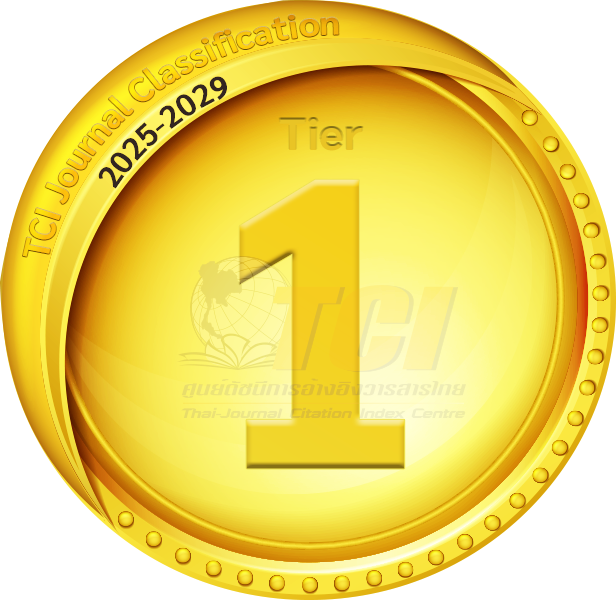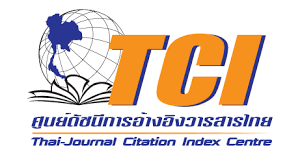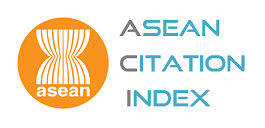Examining Migrant Workers’ Rights in Fishing Industry of Thailand after Ratification of ILO C188: A Case Study of Burmese Migrant Workers in Ranong Province, Thailand
- Shwe Zin Thin, School of Diplomacy and International Studies, Rangsit University, Pathum Thani 12000, Thailand
- Sasiphattra Siriwato, School of Diplomacy and International Studies, Rangsit University, Pathum Thani 12000, Thailand, sasiphattra.s@rsu.ac.th
Abstract
Thailand’s fishing industry is heavily reliant on migrant workers and has been boycotted by several members of the international community for human rights violations, leading to significant losses of seafood export value and revenue. The ratification of the ILO Work in Fishing Convention, 2007 (C188), in 2019 was a demonstrative step taken by Thailand to potentially improve the working conditions of fishers, and to assure the international community that Thai seafood products are free from labor and human rights abuses. Thailand is the only country in Southeast Asia to ratify C188, and it appears the ratification was driven by economic incentives and access to export markets. This research aims to examine the current situation of migrant workers in the Thai fishing industry post-C188 ratification, using Ranong Province as a case study. It also proposes a set of recommendations on how the situation of migrant workers in Ranong’s fishing industry can be improved. Thirteen (13) participants from government agencies, NGOs, migrant workers, and employers were interviewed. The research found that the current working conditions of fishers in Ranong’s fishing sector have not authentically met C188 standards. Notable violations include issues related to health and safety, payment structures, and employment contracts, all of which fall significantly below C188 requirements. Many fishers tend not to approach public authorities to report these violations due to fear, intimidation or lack of trust. Recommendations to help minimize C188 violations include improving reporting mechanisms at PIPO, taking immediate legal action against violators (sanctions), allowing migrant fishers to form their own union, reducing documentation and recruitment costs, and simplifying the immigration process.
Keywords: Fisher, Migrant Worker, Thai Fishing Industry, C188, Work In Fishing Convention, Seafood, PIPO, Ranong
References
Bhula-or, R. (2021). Migration and sustainable development in Thailand. Asian Education and Development Studies, 10(1), 83-94. https://doi.org/10.1108/AEDS-02-2019-0036
Burke, M. C., Krolikowski, T., White, S., & Alabase, N. (2022). Introduction to human trafficking. In M.C. Burke (Ed.), Human trafficking interdisciplinary perspectives (pp. 1-22). New York: Routledge.
Carpio, X. V. D., Messina, J., & Galdeano, A. S. D. (2019). Minimum wage: does it improve welfare in Thailand?. The Review of Income and Wealth, 65(2), 358-382. https://doi.org/10.1111/roiw.12360
Chantavanich, S., Laodumrongchai, S., & Stringer, C. (2016). Under the shadow: forced labour among sea fishers in Thailand. Marine Policy, 68, 1-7. https://doi.org/10.1016/j.marpol.2015.12.015
Dawadi, S. (2020). Thematic analysis approach: A step by step guide for ELT research practitioners. Journal of NELTA, 25(1-2), 62-71. https://doi.org/10.3126/nelta.v25i1-2.49731
Department of Employment. (2017). Foreign’ working management emergency decree B.E. 2560. Retrieved from https://www.doe.go.th/prd/assets/upload/files/legal_th/99cafe53a0d300f8fdb877b08ec99bd6.pdf
Department of Fisheries. (2021a). Fisheries statistics report according to section 9 the royal ordinance on fisheries B.E. 2558. Retrieved from https://www4.fisheries.go.th/local/file_document/20210217105209_1_file.pdf
Department of Fisheries. (2021b). Thai fishing vessels statistics 2021. Retrieved from https://www4.fisheries.go.th/local/file_document/20211224151206_new.pdf
Department of Fisheries. (2022). Thailand’s success in combating IUU fishing. Retrieved from https://www4.fisheries.go.th/dof_en/view_message/232
Department of Labor Protection and Welfare. (2022). Ministerial regulation on labor protection in sea fishing work B.E. 2565. Retrieved from https://nakhonsrithammarat.labour.go.th/ศูนย์ข้อมูลข่าวสาร/มาตรา-7-4-กฎ-มติคณะรัฐมนตรี/791-กฎกระทรวงคุ้มครองแรงงานในงานประมงทะเล-พ-ศ-2565
Environmental Justice Foundation. (2019). Thailand’s progress in combating IUU, forced labour and human trafficking: EJF observations and recommendation. Retrieved from https://ejfoundation.org/resources/downloads/EJF-PIPO-Technical-Report-update-spring-2019.pdf
Errighi, L., Mamic, I., & Krogh-Poulsen, B. (2016). Global supply chains: insight into the Thai seafood sector. Retrieved from https://www.ilo.org/wcmsp5/groups/public/---asia/---ro-bangkok/documents/publication/wcms_474896.pdf
Fishers' Rights Network. (2023). Thailand’s port-in port-out inspections and the ILO: Failing fishers, seafood supply chains at risk. Retrieved from https://justiceforfishers.org/thailands-port-in-port-out-pipo-inspections-and-the-ilo-failing-fishers-seafood-supply-chains-at-risk/
Fishers’ Rights Network. (2024). ITF-FRN Thailand national fisher condition survey results. Retrieved from https://www.itfglobal.org/sites/default/files/node/resources/files/ITF-FRN%20Thailand%20National%20Fisher%20Conditions%20Survey%20Results-January%202024.pdf
Food and Agriculture Organization of the United Nations. (2022). Thailand’s global fish market profile 2019. Retrieved from https://www.fao.org/3/cb9840en/cb9840en.pdf
Guest, G., Namey, E., Taylor, J., Eley, N., & McKenna, K. (2017). Comparing focus groups and individual interviews: findings from a randomized study. International Journal of Social Research Methodology, 20(6), 693-708. https://doi.org/10.1080/13645579.2017.1281601
Hartough, J. (2021). A level playing field: Fishers in Thailand have formed the Fishers Rights Network to collectively demand better wages and working conditions to prevent labor and human-rights abuses. Retrieved from https://www.icsf.net/wp-content/uploads/2022/03/Sam_86_art01_Thailand_Jon_Hartough.pdf
International Labor Organization. (2013a). Employment practices and working conditions in Thailand’s fishing sector. Retrieved from https://www.ilo.org/dyn/migpractice/docs/184/Fishing.pdf
International Labor Organization. (2013b). Meeting report: regional meeting on work in fishing, increased knowledge base and sharing good practices for the protection of migrant workers. Retrieved from https://www.ilo.org/wcmsp5/groups/public/@asia/@ro-bangkok/documents/meetingdocument/wcms_234293.pdf
International Labor Organization. (2014a). Safety and health training manual for the commercial fishing industry in Thailand. Retrieved from https://www.ilo.org/wcmsp5/groups/public/---asia/---ro-bangkok/documents/publication/wcms_329102.pdf
International Labor Organization. (2014b). Work in fishing in the ASEAN region: Protecting the rights of migrant fishers. Retrieved from https://www.ilo.org/wcmsp5/groups/public/---asia/---ro-bangkok/---sro-bangkok/documents/publication/wcms_306645.pdf
International Labor Organization. (2017). C188 Work in Fishing Convention 2007 No. 188. Retrieved from https://www.ilo.org/dyn/normlex/en/f?p=NORMLEXPUB:12100:0::NO::P12100_ILO_CODE:C188
International Labor Organization. (2018). First fishing vessel detained under ILO Fishing Convention. Retrieved from https://www.ilo.org/global/about-the-ilo/newsroom/news/WCMS_634680/lang--en/index.htm
International Labor Organization. (2019a). Fishing convention C188: Thailand ratifies Work in Fishing Convention. Retrieved from https://www.ilo.org/global/about-the-ilo/newsroom/news/WCMS_666581/lang--en/index.htm
International Labor Organization. (2019b). Less is more: how policy and technology can impact the Thai labour market for work in fishing. Retrieved from https://www.ilo.org/asia/publications/WCMS_733899/lang--en/index.htm
International Labor Organization. (2020). Endline research findings on fishers and seafood workers in Thailand. Retrieved from https://www.ilo.org/wcmsp5/groups/public/---asia/---ro-bangkok/documents/publication/wcms_738042.pdf
International Labor Organization. (2021). Direct request (CEACR) adopted 2020 published 109th ILC session 2021 work in fishing convention, 2007 No.188 South Africa ratification 2013. Retrieved from https://normlex.ilo.org/dyn/nrmlx_en/f?p=NORMLEXPUB:13100:0::NO::P13100_COMMENT_ID%2CP13100_COUNTRY_ID:4062977%2C102888
International Labor Organization. (2022a). Detention of foreign fishing vessel in South Africa follows ILO training on forced labor. Retrieved from https://www.ilo.org/africa/countries-covered/south-africa/WCMS_858104/lang--en/index.htm
International Labor Organization. (2022b). Direct request (CEACR) adopted 2021 published 110th ILC session 2022 work in fishing convention, 2007 No.188 Thailand ratification 2019. Retrieved from https://normlex.ilo.org/dyn/nrmlx_en/f?p=NORMLEXPUB:13100:0::NO::P13100_COMMENT_ID,P13100_COUNTRY_ID:4124412,102843
International Labor Organization. (2022c). New mobile application protects workers' rights in Moldova. Retrieved from https://www.ilo.org/resource/news/new-mobile-application-protects-workers-rights-moldova
International Labour Organization. (2023). First tripartite social dialogue within the first sector. Retrieved from https://www.ilo.org/resource/article/first-tripartite-social-dialogue-within-fishing-sector
International Organization for Migration. (2019). Thailand migration report 2019. Retrieved from https://thailand.iom.int/sites/g/files/tmzbdl1371/files/document/publications/Thailand%20Report%202019_22012019_HiRes.pdf
International Organization for Migration. (2021). IOM annual report 2021. Retrieved from https://thailand.un.org/sites/default/files/2022-08/IOM%20Annual%20Report%202021_0.pdf
Jankomol, P. (2023). Personal document retention among migrant workers employed on fishing vessels. Retrieved from https://hrdfoundation.org/wp-content/uploads/2023/09/Fact-Sheet-No.1_Document-Retention_Publish1.pdf
Khemanitthathai, S. (2021). Situation on migrant workers and border crossing during the Covid-19 pandemic. Retrieved from https://mwgthailand.org/sites/default/files/2022-02/Situation%20on%20Migrant%20Workers%20and%20border%20crossing%20During%20the%20covid19%20pandemic.pdf
Laodumrongchai, S. (2007). Chapter II: Trafficking for sexual exploitation into Ranong. In P. Wongboonsin, S. Laodumrongchai, N. Yuenyong, & S. Thipakorn (Eds.), Trafficking for sexual exploitation into southern Thailand (pp. 5-13). Bangkok: Institut de recherche sur l’Asie du Sud-Est.
Migrant Working Group. (2021). The implementation of laws and policies relevant to the fishers rights’ protection under the ILO Working in Fishing Convention 2007 (No. 188) in Thailand. Retrieved from https://mwgthailand.org/sites/default/files/2023-07/Final%20report_The%20implementation%20of%20C188_ENG_10102021.pdf
Ministry of Foreign Affair, Kingdom of Thailand. (2018). Thailand uses MOU system to recruit migrant workers to fill jobs in marine fisheries sector. Retrieved from https://www.mfa.go.th/en/content/5d5bd1c115e39c30600264b3?cate=5d5bcb4e15e39c306000683e
Parliamentary Monitoring Group. (2020). Maritime governance and sustainable development: Report back on COP25 outcomes and implications for South Africa, with minister. Retrieved from https://www.pgaction.org/pdf/2020/2020-03-SA-Parliamentary-Monitoring-Group-Meeting-Report.pdf
Politakis, G. (2008). From tankers to trawlers: The International Labour Organization’s new Work in Fishing Convention. Ocean Development & International Law, 39, 119-128. https://doi.org/10.1080/00908320802013917
Poonachit-Korsieporn, A. (2000). Coastal fishing community in Thailand RAP Publication No. 2000/06. Retrieved from https://www.fao.org/3/AC790E/AC790E00.htm#TOC
Provincial Labour Office Ranong. (2024). Minimum wage. Retrieved from https://ranong.mol.go.th/en/minimum-wage
Ranong Province. (2018). Economic situation. Retrieved from https://ranongcities.com/2561/content/economy
Ranong Provincial Employment Office. (2024a). The number of migrants who are permitted to work in Ranong province classified by nationality from 2017 to 2023. Bangkok: Ranong Provincial Employment Office.
Ranong Provincial Employment Office. (2024b). The number of migrant workers employed in fishing sector of Ranong classified by nationality from 2017 to 2023. Bangkok: Ranong Provincial Employment Office.
Ridings, P. J. (2021). Labour standards on fishing vessels: A problem in search of a home?. Melbourne Journal of International Law, 22(2), 1-24.
Ruangsuwan, C. (2018). The Root causes of labor trafficking in the Thailand fishing Industry: A long chain of structural problems. Journal of Social Sciences and Humanities, 5(1), 13-19. Retrieved from
Seo, H. J. (2018). Trapped at sea: blood, sweat, and tears of Thailand’s fishing industry. Harvard International Review, 39(2). 44-47.
Southeast Asian Fisheries Development Center. (2021). SEAFDEC database: Fishery statistics of Southeast Asia. Retrieved from http://map.seafdec.org/NewBulletin/totalproduction.php?py=2021
Sricharoen, T. (2021). International migrant remittances and saving from Thailand to neighboring countries. European Journal of Business and Management Research, 6(5), 246-254. https://doi.org/10.24018/ejbmr.2021.6.5.958
Srimuang-Kanjana, C. (2015). Border security management of Thailand. Retrieved from https://www.parliament.go.th/ewtadmin/ewt/parliament_parcy/ewt_dl_link.php?nid=53901&filename=house2558_2
Stephens, S. (2017). Show, don't tell: How Thailand can and must make advancements in the fight against human trafficking in the Thai fishing industry. Emory International Law Review, 31(3), 477-502.
Tammapiban-udom, K. (2015). Legal measures to prevent human rights infringement in the product supply chain: A focus on Thai fishery industry. Thammasat Business Law Journal, 5, 1-12.
Tavornmas, A., & Cheeppensook, K. (2020). Shaping ocean governance: a study of EU normative power on Thailand’s sustainable fisheries. International Economics and Economic Policy, 17(3), 671-685. https://doi.org/10.1007/s10368-020-00475-1
The Organization for Economic Cooperation and Development. (2020). Monitoring labor risk through technology. Retrieved from https://mneguidelines.oecd.org/OECD-Garment-Forum-2020-Session-Note-Monitoring-Labour-Risks-Through-Technology.pdf
United Nations. (2023a). Goal 1: End poverty in all its forms everywhere. Retrieved from https://www.un.org/sustainabledevelopment/poverty/
United Nations. (2023b). Promote inclusive and sustainable economic growth, employment and decent work for all. Retrieved from https://www.un.org/sustainabledevelopment/economic-growth/
Vandergeest, P., & Marschke, M. (2020). Modern slavery and freedom: Exploring contradictions through labor scandals in the Thai fisheries. A Radical Journal of Geography, 52(1), 291-315. https://doi.org/10.1111/anti.12575
Vandergeest, P., & Marschke, M. (2021). Beyond slavery scandals: Explaining working conditions among fish workers in Taiwan and Thailand. Marine Policy, 132, 1-8. https://doi.org/10.1016/j.marpol.2021.104685
Wongboonsin, P. (2007). Chapter I: Introduction. In P. Wongboonsin, S. Laodumrongchai, N. Yuenyong, & S. Thipakorn (Eds.), Trafficking for sexual exploitation into southern Thailand (pp. 1-4). Bangkok, Thailand: Institut de recherche sur l’Asie du Sud-Est.
Wongpreedee, A. (2014). Migrant worker population in Ranong. NIDA Case Research Journal, 5(2), 57-83. Retrieved from https://so04.tci-thaijo.org/index.php/NCRJ/article/view/27663
Yenpoeng, T. (2018). Fisheries country profile: Thailand 2018. Retrieved from http://www.seafdec.org/fisheries-country-profile-thailand-2018/

Indexed in


Search